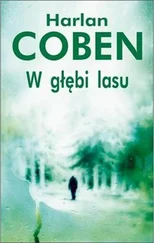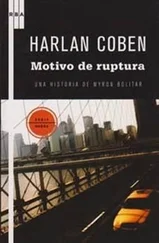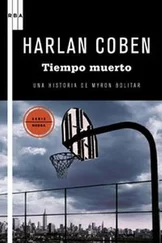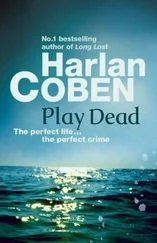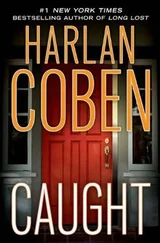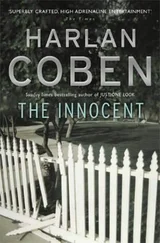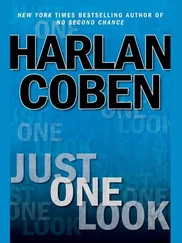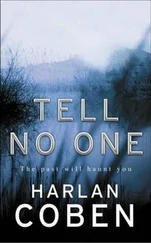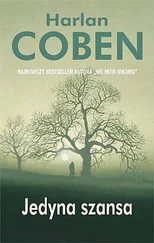Harlan Coben - Six Years
Здесь есть возможность читать онлайн «Harlan Coben - Six Years» весь текст электронной книги совершенно бесплатно (целиком полную версию без сокращений). В некоторых случаях можно слушать аудио, скачать через торрент в формате fb2 и присутствует краткое содержание. Год выпуска: 2013, ISBN: 2013, Издательство: Orion, Жанр: Старинная литература, на английском языке. Описание произведения, (предисловие) а так же отзывы посетителей доступны на портале библиотеки ЛибКат.
- Название:Six Years
- Автор:
- Издательство:Orion
- Жанр:
- Год:2013
- ISBN:9781409144571
- Рейтинг книги:5 / 5. Голосов: 1
-
Избранное:Добавить в избранное
- Отзывы:
-
Ваша оценка:
- 100
- 1
- 2
- 3
- 4
- 5
Six Years: краткое содержание, описание и аннотация
Предлагаем к чтению аннотацию, описание, краткое содержание или предисловие (зависит от того, что написал сам автор книги «Six Years»). Если вы не нашли необходимую информацию о книге — напишите в комментариях, мы постараемся отыскать её.
Six Years — читать онлайн бесплатно полную книгу (весь текст) целиком
Ниже представлен текст книги, разбитый по страницам. Система сохранения места последней прочитанной страницы, позволяет с удобством читать онлайн бесплатно книгу «Six Years», без необходимости каждый раз заново искать на чём Вы остановились. Поставьте закладку, и сможете в любой момент перейти на страницу, на которой закончили чтение.
Интервал:
Закладка:
I tried to take this in.
Shanta put her hands on the table. “Do you know how hard it is to live off the grid like that?”
“Not really, no.”
“In this day and age with computers and all the technology? It’s pretty close to impossible.”
“Maybe there’s a reasonable explanation,” I said.
“Like what?”
“Maybe she moved overseas.”
“Then there’s no record of her going there. No passport issued. No entry or exit in the computer. Like I said before—”
“Nothing,” I finished for her.
Shanta nodded.
“She’s a person, Shanta. She exists.”
“Well, she existed. Six years ago. That was the last time we had an address on her. She has a sister named Julie Pottham. Her mother, Sylvia Avery, is in a nursing home. Do you know all this?”
“Yes.”
“Who did she marry?”
Should I answer that one? I saw little harm. “Todd Sanderson.”
She jotted the name down. “And why did you want to look her up now?”
You made a promise.
“It doesn’t matter,” I said. “I should just let it be.”
“Are you serious?”
“I am. It was a whim. I mean, it’s been six years. She married another man and made me promise to leave her alone. So what exactly am I looking for anyway?”
“But that’s what makes me curious, Jake.”
“What does?”
“You kept this promise for six years. Why did you suddenly break it?”
I didn’t want to answer that, and something else was starting to gnaw at me. “Why are you so interested?”
She didn’t reply.
“I asked you to look a person up. You could have just told me that you didn’t find anything. Why are you asking me all these questions about her?”
Shanta seemed taken aback. “I was just trying to help.”
“You’re not telling me something.”
“Neither are you,” Shanta said. “Why now, Jake? Why are you looking for your old love now?”
I stared down at the popover. I thought about that day in this restaurant six years ago, the way Natalie tore off small pieces of her popover, the look of concentration as she buttered it, the way she simply enjoyed everything. When we were together, even the smallest thing took on significance. Every touch brought pleasure.
You made a promise.
Even now, even after all that had happened, I couldn’t betray her. Stupid? Yep. Naive? Oh, several steps south of that. But I couldn’t do it.
“Talk to me, Jake.”
I shook my head. “No.”
“Why the hell not?”
“Who ordered turkey BLT?”
It was another waitress, this one less perky and more harried. I raised my hand.
“And the grilled portobello sandwich?”
“Wrap it for me,” Shanta said, rising. “I lost my appetite.”
Chapter 13
The first time I met Natalie she was wearing sunglasses indoors. To make matters worse, it was nighttime.
I rolled my eyes, thinking it was for effect. I figured that she fancied herself an Artiste with a capital A . We were attending a mixer of sorts, the art colony and the writers’ retreat, sharing one another’s work. This was my first time attending, but I soon learned that it was a weekly gathering. The art was displayed in the back of Darly Wanatick’s barn. Chairs were set up for the readings.
The woman in the sunglasses—I hadn’t met her yet—sat in the last row, her arms crossed. A bearded man with dark curly hair sat next to her. I wondered whether they were together. Remember the blowhard named Lars who was writing poetry from the perspective of Hitler’s dog? He began to read. He read for a long time. I began to fidget. The woman in the sunglasses remained still.
When I could listen no longer, rude or not, I wandered toward the back of the barn and started to check out the various art on display. Most of it, well, I will be kind. I didn’t “get it.” There was an installation piece called Breakfast in America that featured spilled boxes of cold cereal on a kitchen table. That was it. There were boxes of Cap’n Crunch, Cap’n Crunch with Peanut Butter (one person actually muttered, “Notice there is no Cap’n Crunch with Crunch Berries—why?—what is the artist saying?”), Lucky Charms, Cocoa Puffs, Sugar Smacks, even my old favorite, Quisp. I looked at the spilled cereal coating the table. It did not speak to me, though my stomach grumbled a little.
When one person asked, “What do you think?” I was tempted to say that it needed a little milk.
As I kept walking, only one artist’s work gave me real pause. I stopped at a painting of a small cottage on top of a hill. There was a soft morning glow hitting the side—the pinkness that comes with the first light of day. I couldn’t tell you why but it choked me up. Maybe it was the dark windows, as though the cottage had once been warm but it was abandoned now. I don’t know. But I stood in front of the painting and felt lost and moved. I stepped slowly from one painting to the next. They all delivered a blow of some kind. Some made me melancholy. Some made me nostalgic, whimsical, passionate. None left me indifferent.
I will spare you the “big reveal” that the paintings were done by Natalie.
A woman was smiling at my reaction. “Do you like them?”
“Very much,” I said. “Are you the artist?”
“Heavens no. I run the bakery and coffee shop in town.” She offered me her hand. “They call me Cookie.”
I shook it. “Wait. Cookie runs a bakery?”
“Yeah, I know. Too precious, right?”
“Maybe a tad.”
“The artist is Natalie Avery. She’s right over there.”
Cookie pointed to the woman with the sunglasses.
“Oh,” I said.
“Oh what?”
With the sunglasses-indoors look, I had her pegged as the creator of Breakfast in America . Lars had just finished his reading. The crowd gave him a small golf-clap, but Lars, sporting an ascot, bowed as though it were a thunderous standing ovation.
Everyone quickly rose except for Natalie. The man with the beard and curly hair whispered something to her as he stood, but still she didn’t move. She stayed with her arms crossed, still lost, it seemed, in the essence of Hitler’s dog.
I approached her. She looked right through me.
“The cottage in your painting. Where is it?”
“Huh?” she said, startled. “Nowhere. What painting?”
I frowned. “Aren’t you Natalie Avery?”
“Me?” She seemed befuddled by the question. “Yeah, why?”
“The painting of the cottage. I really loved it. It . . . I don’t know. It moved me.”
“Cottage?” She sat up, took off the sunglasses, and rubbed her eyes. “Sure, right, a cottage.”
I frowned again. I was not sure what reaction I expected, but something a bit more demonstrative than this. I looked down at her. Sometimes I am not the sharpest knife in the drawer but when she rubbed her eyes again, the realization hit me.
“You were sleeping!” I said.
“What?” she said. “No.”
But she rubbed her eyes some more.
“Holy crap,” I said. “That’s why you’re wearing the sunglasses. So no one can tell.”
“Shh.”
“You were sleeping this whole time!”
“Keep it down.”
She finally looked up at me and I remembered thinking that she had a beautiful, sweet face. I would soon learn that Natalie had what I’d call a slow beauty, the kind you don’t really notice at first and then it knocks you back and grows on you and she gets more beautiful every time you see her and then you can’t believe that you ever thought that she was anything less than completely stunning. Whenever I saw her, my entire body reacted, as though it were the first time or better.
“Was I that obvious?” she asked in a whisper.
Читать дальшеИнтервал:
Закладка:
Похожие книги на «Six Years»
Представляем Вашему вниманию похожие книги на «Six Years» списком для выбора. Мы отобрали схожую по названию и смыслу литературу в надежде предоставить читателям больше вариантов отыскать новые, интересные, ещё непрочитанные произведения.
Обсуждение, отзывы о книге «Six Years» и просто собственные мнения читателей. Оставьте ваши комментарии, напишите, что Вы думаете о произведении, его смысле или главных героях. Укажите что конкретно понравилось, а что нет, и почему Вы так считаете.


